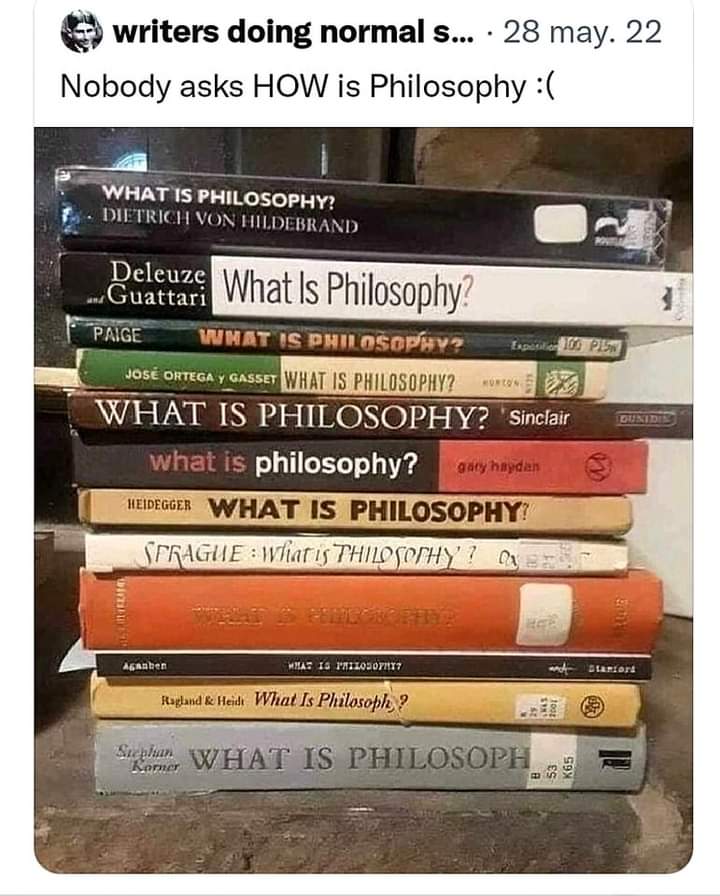Midterm Exam
Posted: Wed, Oct 22, 2025

Logistics
- Our midterm exam is Wednesday, October 29, in our usual classroom and during our usual class time.
- The midterm version of your course lexicon is due in hard copy at the end of the exam. This is the cleaned-up version, which should be a glossary of terms with their definitions/explanations/verbal or non-verbal illustrations.
- The exam is closed book and closed notes, except that you are allowed to consult your own course lexicon.
- The exam will consist of four short answer questions and an essay question.
- If you have accessibility needs, please don’t be afraid to discuss them with me. You are also welcome to take the exam with CARDS or Columbia’s disability services, and please reach out if you need help with the logistics.
A few words about the point of the exam
- I would rather we didn’t have any grades. There are colleges without grades, but Barnard is not one of them.
- So I want us to make the most we can out of what we have to work with. The midterm exam for me is a tool for teaching, not testing: I don’t think of the exam as a “test” of my students’ learning; instead, I mean for it to be a planned break—like a lookout point—on a long journey so students can step back, gather themselves, and take time to revisit, absorb, and reflect on what we’ve covered so far.
- And I’d like to make this a (relatively) fun experience as well! I know that an in-class “essay” sounds scary, but I’m not expecting a polished paper. Try to approach the prompt as a conversation starter: You’ve heard enough from me already; now the mic is yours and I’m really curious to hear your take! Imagine we are just hashing this out over brunch on a pleasant Saturday morning (if you still feel nervous, try imagining that you are talking to a friend who has not taken this class). Tell me what the problem space is like—what the issue is, where the constraints lie, how people have tried and failed—and how you are thinking about it.
Topics it would make sense to review
Here I’m organizing the readings/topics somewhat differently from how they are presented in the schedule. This is to introduce a second perspective that illuminates their connections.
Metaphilosophy: Philosophical questions about philosophy
- Philosophy’s self-conception: What philosophy is interested in and what philosophy can do.
- The philosopher’s self-conception: The junzi vs. the lover of wisdom.
- Philosophy as a lineage of texts and authors, including the reintroduction of Aristotle to the Latin West through medieval Arabic philosophy.
- The development of Western philosophy’s methodology: Reason, first principles, dialogues.
- The flip of side of all this: What philosophy is not and who is not considered a philosopher.
- Two close reading skills: How audience informs interpretation, and how to uncover esoteric readings.
- Some basic distinctions: A priori vs. a posteriori; necessary vs. sufficient conditions; mind vs. body; reason vs. affect; appearance vs. reality; epistemic vs. practical reasons for belief; semantics vs. syntax.
- Philosophy and religion: Why does there seem to be a conflict between the two? Is it a real conflict, and why or why not?
Metaphysics: What’s the nature of the world?
- The existence of God: Ontological and cosmological arguments.
- The problem of evil and solutions proposed by Augustine and Maimonides.
- Computers: What are they?
- Conceptions of free will: Alternative possibility vs. actual sequence.
- The consequence argument against the compatibility of free will and determinism, and Lewis’s response.
- Frankfurt’s argument against the alternative possibilities conception of free will.
- The Kratzer-Lewis semantics of ‘can’ and how it solves the grandfather paradox.
- Other time travel issues: Lewis on causal loops in time travel; hypertime travel??
Epistemology: What and how do we know?
- The existence of God: Pascal’s wager.
- Cartesian doubt as a constructive exercise.
- Russell’s argument against external world skepticism by inference to the best explanation.
- Artificial intelligence: The Turing test and how difficult/easy it is.
Possible Essay Prompts
Two of the following prompts will be selected to appear on the exam, and you will be asked to answer one of the two. An excellent essay will build on but go beyond our class discussions in some significant way. Aim for 500–700 words.
- Do we have free will, and why or why not?
- “Demonstrative truth and scriptural truth cannot conflict” (Ibn Rushed, The Decisive Treatise). Explain and assess.
- “Today’s best artificial intelligence (AI) models sail through the Turing test, a famous thought experiment that asks whether a computer can pass as a human by interacting via text” (Elizabeth Gibney, for Nature News). Comment on this statement.
- “I hadn’t met any [women philosophers] at Hunter [high school] or Barnard, of course. . . . The then chairman of the Columbia philosophy department said when I applied for admission [to the doctoral program] that he hoped I would enjoy doing philosophy for its own sake because I mustn’t suppose I could ever get a job as a teacher of philosophy. He said that philosophy departments don’t hire women except as secretaries. . . . [S]ome years after I had received my Ph.D., and I had asked a friend of my husband’s and mine who was then a member of the Harvard philosophy department whether he thought I could get some TA-ing to do for his department. Our friend said no—his department wouldn’t entrust its undergraduates to women, even as TAs” (Judith Jarvis Thomson, BC ’50). Discuss in light of our discussion of Western philosophy’s self-image.